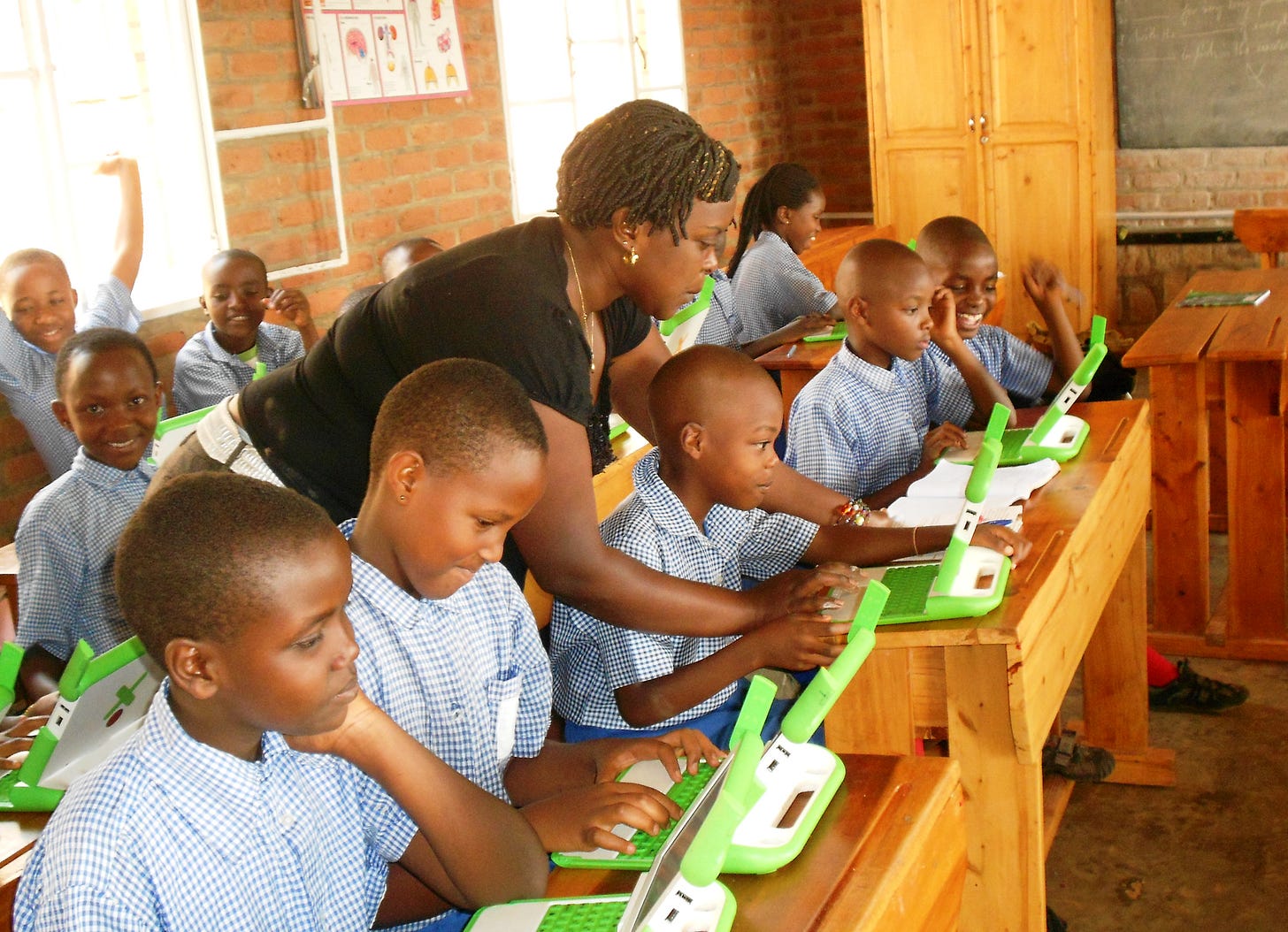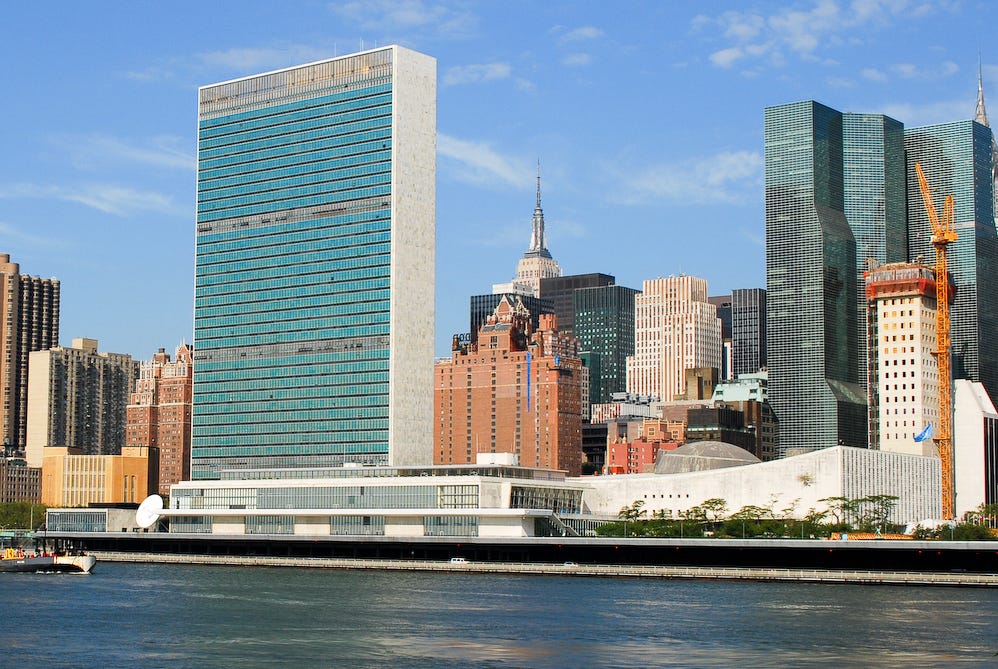🔅 Jobs Over Religion: Why kids are joining militant groups
Plus: Côte d'Ivoire's e-card system for cocoa farmers, Nigeria investigates its military for alleged violations, How a DRC mining company is changing strategies to remain relevant, And much more... ☕
Photo of the day: Benin Republic

Markets:
🔻 Nigerian SE: 54,299.76 (-0.13%)
🔻 Johannesburg SE: 79,534.22 (-0.06%)
— Ghana SE: 2,405.34 (0.00%)
🔻 Nairobi SE: 128.13 (-0.94%)
🔺 US S&P 500: 4,142.78 (+0.77%)
🔺 Shanghai Composite: 3,248.09 (+0.29%)
Tech Job Cuts - a Sign of the Times or Just Big Tech? | Big tech companies have been slashing jobs left and right since the start of 2021, leading to fears that the labour market could take a turn for the worse. But analysts say the tech industry is just 2% of the US labour market. Many of these companies are just downsizing after taking on too many staff during the pandemic and because their share prices have naturally decreased. And while we don't know what the future holds, there are plenty of job openings and people are finding new jobs at a historically high rate (as per our newsletter yesterday). In other words, the tech job cuts don't necessarily mean that the overall job market is in trouble.
*Data accurate as of the close of markets across the continent
SECURITY
Jobs Over Religion: Africa's Growing Militant Groups
Terrorist attacks have been on the decline worldwide in the past five years, but not in Sub-Saharan Africa.
In fact, it’s become the global epicentre for such activities.
As armed groups linked to al-Qaeda and ISIL expand their reach, the United Nations Development Programme (UNDP) decided to look into what’s led so many people to join such organizations.
What did UNDP find?
Based on interviews with hundreds of former fighters, the UNDP report found that the primary reason for joining was financial need, rather than religious beliefs.
25 per cent of those interviewed said they needed money, 22 per cent cited wanting to join with family and friends, and 17 per cent said religious ideas were behind their decision.
At the same time, nearly half of the respondents said a “tipping point” pushed them to join, such as the killing or arrest of family members by state security forces.
What else?
The report also found that education levels among recruits were low, and mistrust in the government was high. It noted that an additional year of schooling reduced the likelihood of voluntary recruitment to armed groups by 13 per cent.
The report recommends greater investment in child welfare, education and quality livelihoods to counter and prevent “violent extremism”, rather than a militarized approach.
UNDP administrator Achim Steiner said the social contract between states and citizens must be reinvigorated to tackle the root causes of violent extremism.
So, in other words, more jobs, more education, and more trust in the government. Sounds like a simple solution, but...

If you’re a regular here, hit that share button. Tell your friends and colleagues about how Baobab will get them smarter on African business, money and current affairs in less than 5 minutes a day, for free!
OTHER HEADLINES
Across the Continent

🇨🇮 Ivory Coast's E-Card Plan to Put Cocoa Farmers in the Driver's Seat | Ivory Coast, the world’s top cocoa producer, has a plan to give cocoa farmers a leg up. The Coffee and Cocoa Council has started handing out electronic cards to track beans from plantations to ports and ensure farmers get paid the guaranteed price for their produce. The cards will also help the country meet the European Union’s plan to ban imports of commodities linked to deforestation and rights abuses by 2024. The e-cards will also have an electronic payment and wallet system, so farmers can finally get their due. “It is the first time I have a bank card that I can use to withdraw cash,” said Jean Dominique Boua, one of the lucky farmers to get a card. The Coffee and Cocoa Council plans to distribute around 50,000 cards per month until the end of the current season.
🇳🇬 Nigerian Human Rights Panel Investigate Army | The Nigerian government has put together a special human rights panel to investigate the country’s military and its alleged brutality against civilians. This follows a Reuters report that said the army had carried out a secret abortion programme, massacred children, and generally been violating human rights. The military has denied the allegations, but the seven-member panel—led by a retired Supreme Court judge—is moving ahead with its investigations, which could result in criminal charges. Although largely independent, rights groups say the NHRC is inadequately funded and its lack of prosecuting powers has weakened its ability to effectively bring offenders to book. The panel will also be looking into possible damages or compensation for victims. And in a twist of fate, the panel includes a retired major general, Letam Wiwa, the younger brother of Ken Saro-Wiwa, an activist who was executed by the military in 1995. Now, Wiwa is part of a team that could bring some justice to victims of military brutality.
🇰🇪 Kenya Power: Driving into the Electric Age | Kenya Power, the sole power distributor in Kenya, is making the switch to electric cars and motorcycles over the next four years. It’s part of a larger trend in the East African country to use the abundant renewable energy sources for electric vehicles. Kenya Power will be retrofitting existing cars and buying new electric ones, a great way to use the off-peak load available generation capacity. Hey, if you’re going to have excess electricity, you might as well put it to good use, right? After all, more than three-quarters of Kenya’s population rely on Kenya Power to provide electricity.
🇧🇫 Burkina Faso Attack Leaves 25 Dead | An attack in Burkina Faso on Saturday left 25 people dead, according to the interim government. The attack happened in the northern province of Seno—an area that’s been a hotbed of jihadist activity since 2015. It’s the latest in a string of violent attacks across the West African region linked to al Qaeda and Islamic State, and it’s making a severe dent in the region’s security. The military has stepped up to try and combat the violence, but with more than 2.7 million people displaced, it looks like it will take a while to get this problem under control. It’s a situation that’s been made worse by several regional military takeovers, including two in Burkina Faso alone last year.
🇨🇩 Congo's Mining Company Is Ready to Dig Deep | Gecamines, Congo’s state-owned mining company, is looking to get back into the big leagues with a new strategy. Chairman Alphonse Kaputo Kalubi told an audience at the Investing in African Mining Indaba that the company is aiming to produce 100,000 tonnes of copper per year and explore for minerals needed for the transition to a lower carbon economy. That includes lithium, tin, and rare earths. He also urged investors to get in touch for “win-win partnerships”. But there’s a catch: Gecamines sites are illegally mined by artisanal miners who sell their minerals to foreign buyers. To combat this, Gecamines must plan to work alongside the artisanal miners. “We can no longer tolerate the disgraceful conditions in which artisanal diggers work, and we can no longer tolerate that our state and Gecamines, whose concessions are illegally exploited, be robbed of their riches,” said Kaputo.

FOOD FOR THOUGHT
Proverb of the Day
“To agree to have dialogue is the beginning of a peaceful resolution.”
— Somali Proverb.





